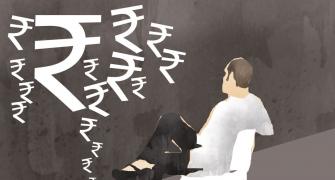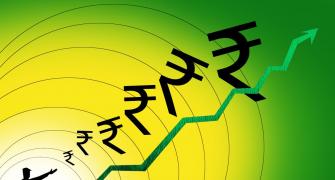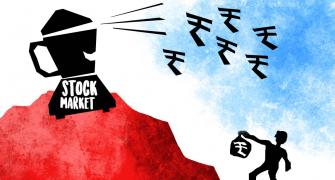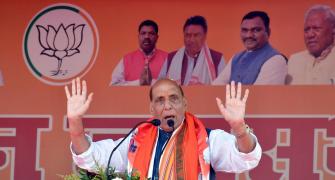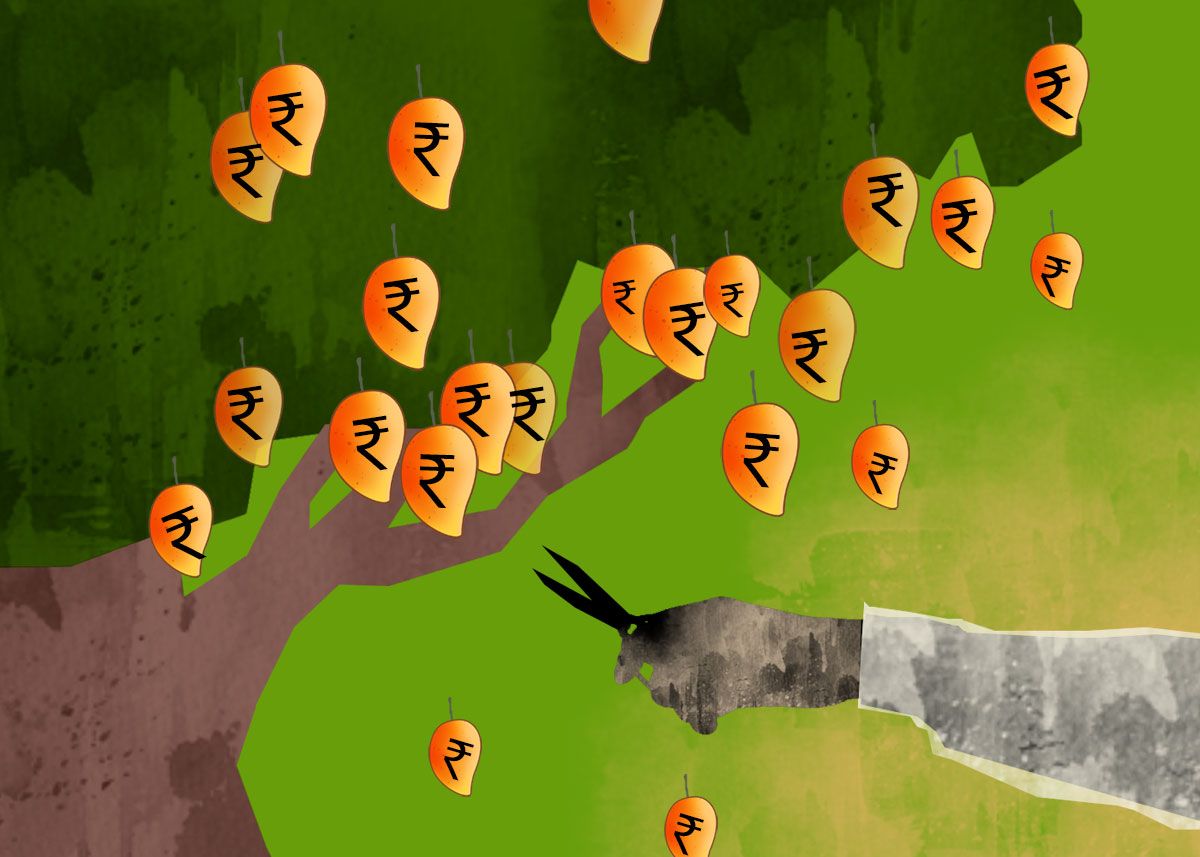Only the top 5 per cent profit makers account for 75 per cent of profits.
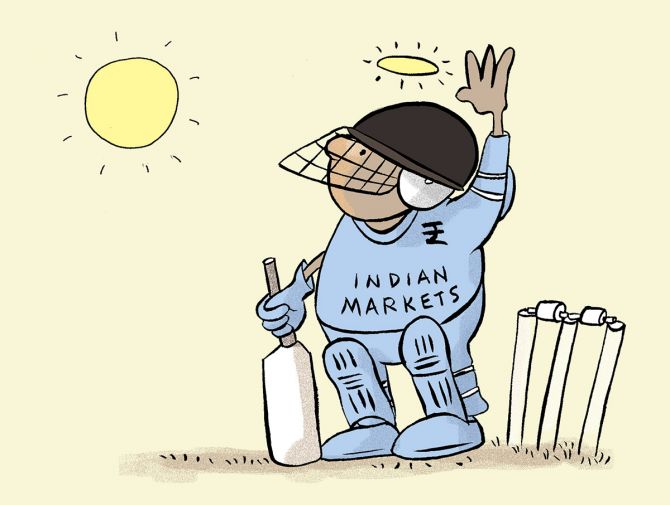
Saad Bhakshi, an aspiring pilot, is addicted to stock market investing. He mostly dabbles in stocks and invests in IPOs. He was drawn due to crypto trading at one point, but no longer fancies it.
The 22 year old has largely refrained from trading in derivatives due to fear of huge losses although he is mesmerised by the wild swings option prices see on a daily basis.
"Once I get a better handle on the stocks, I will try my luck in options," he says.
He speaks of how his parents have "literally broken the bank to fund my aviation studies".
His courses are intermittent, so he has a lot of free time.
He aspires to make it big in stocks "so that I can repay my parents' debt and more importantly reduce the guilt associated with it".
Of course, once he becomes a full-time pilot, he says, he will earn a decent sum "but that's still a long time in the future". Sometimes, he adds, that gives him a lot of anxiety.
Bhakshi's love for planes began when he was barely three years old. As a toddler, he used to run to the balcony every time there was a sound of an aircraft flying.
His attraction towards investing in stocks is relatively new. He has no finance background, nor has anyone from his family actively invested in stocks or tracked the market.
He is among over 50 million new investors who have taken to investing post-Covid, thanks to digital onboarding, ease of account opening and a lot of free time due to lockdowns.
"It largely started with hits and misses," he recalls.
"Many of my friends also opened trading accounts for stocks and crypto after the pandemic. It became like an in-thing."
Barring a few blips, stocks largely went up post April 2020, he says. "This made us invest more and more, although we started with a very small sum."
After crashing nearly 40 per cent in the wake of the COVID-19 pandemic in March 2020, equity markets globally rebounded sharply as global central banks, mainly the US Federal Reserve, lowered interest rates to near-zero and started quantitative easing (QE) programmes to help revive the economy.
A large portion of that money found its way into stocks.
After tasting blood in 2020, Bhakshi and his friends got addicted to making short-term punts.
Most investment cues were obtained from the chatter on social media platforms like Twitter (now X), watching business channels and joining private messaging groups on Telegram and WhatsApp.
Some also blindly invested in themes or companies that sounded cool.
Bhakshi recalls how his friends started investing in companies with 'oxygen' in their moniker amid a shortfall for oxygen during the second wave in 2021.
Most of the bets went awry as several of these companies had nothing to do with oxygen manufacturing.
From the Covid lows of 25,639 on March 23, 2020, the benchmark Sensex has rallied 2.7 times, and has surpassed many milestones. This year the Sensex crossed the 71,000-mark and Nifty, the 21,000-mark.
In other words, someone who invested a sum of Rs 10 lakh would have seen it become Rs 27 lakh at December 22 close.
The mid and small-cap segment, which attracts retail investors like Bhakshi, rose sharply last year.
The Nifty Mid Cap 100 and Nifty Small Cap 100 has in 2023 risen 43.12 and 52.5 per cent, respectively.
"I don't think I've doubled my investment corpus," says Bhakshi, hesitant to divulge the exact sum he bet on the markets.
"I've definitely made profits, but they still pale in comparison if you look at how the Sensex has grown or some of the smallcap stocks have grown."
He feels had he not frequently bought and sold shares, he would probably have made more money.
Between April 2020 and October 2021, the stock market was largely upward trending. However, after the US Fed and other central banks started raising rates and unwinding the post-pandemic stimulus measures, the market turned shaky.
In the past two years, market returns have been poor, with the Sensex returning less than 10 per cent. This has been a reality check for a lot of new investors, who entered the fray thinking that the markets will continue to deliver eye-popping returns.
Historical data shows market returns eventually revert to their long-term mean of about 12 per cent per annum, which experts believe can be made by remaining invested for the long haul.
"Neither me nor any of my friends have become rich by investing like we constantly dream of," Bhakshi says.
"The only good thing to come out of this has been the learning." He is now more aware and curious about how the markets work, how companies function and which sectors do well.
"The way some airline stocks have gone burst also makes me wonder if I've chosen the right profession, whether I will have a stable job and whether I will ever be able to repay my parents' debt," he says.

Whenever Bakhshi tries his hand at derivatives, he will join a rapidly growing tribe drawn into derivatives trading even though the odds of winning are stacked against it.
A recent study by Sebi showed that 90 per cent of active investors (those who trade more than five times a year) made losses in FY22, with an average loss of Rs 60,000.
Furthermore, only the top 5 per cent profit makers account for 75 per cent of profits, indicating that only a few traders are successful at gaming derivatives trade.
Despite talks about restricting retail entry to the derivatives segment, Sebi has refrained from such a move. It believes investors should fully understand the risk before dabbling in the risky derivatives segment.
As a result, most brokerages flash cigarette-pack-like warnings to investors whenever they log in into their accounts.
The market regulator also cautions investors. For instance, Sebi Chairperson Madhabi Puri Buch recently said the real power of the stock market is in the long term.
This helps investors in wealth creation for a sustained period. The chances of winning in the short term are slim.
Feature Presentation: Ashish Narsale/Rediff.com


